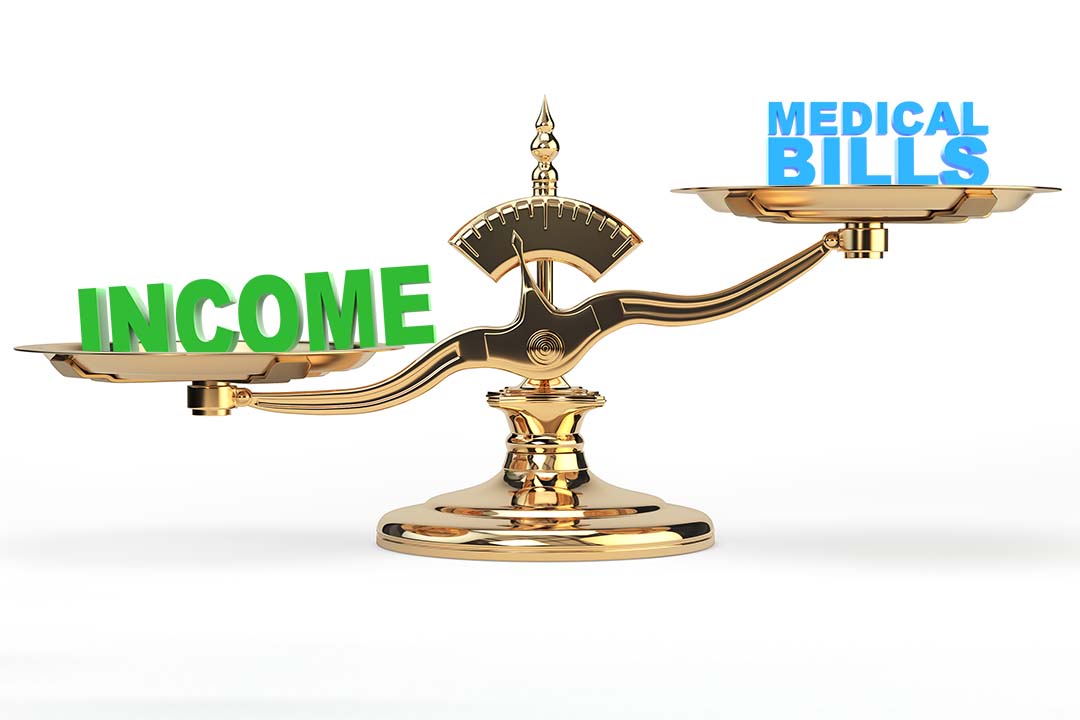Frequently asked questions on Income Protection Insurance.
Do you need income protection insurance?
Income protection insurance would be vital to you if:
- You are self-employed, a contractor or company director and would not be able to pay the bills if you were unable to work. In this scenario, an income protection policy would ensure that you would be able to pay your bills if you were ill or injured.
- You are employed and the sole income provider and would not be able to pay the bills if you were unable to work. As the sole source of income, income protection insurance helps to protect yourself and your family financially. Find the right policy for you, to ensure you can pay the bills and monthly outgoings if you suffered an accident or sickness that meant you could not work.
Income protection insurance is important to you if:
- You are self-employed, and you don’t have a large amount of savings that you are happy to dip into. Consider taking out an accident and illness policy for maximum protection.
- You are the sole income provider and your employer offers sick pay. Check what level of sick pay you would get from your employer before making a final decision about income protection insurance. Few companies offer long term sick pay beyond the Statutory Sick Pay, so it is important to have all the information in advance.
- You live in a joint income household but are unsure if your partner would be able to cover the financial responsibilities. If your partner’s salary couldn’t cover the bills, then it would be worthwhile considering an income protection insurance policy.

Policy Comparison
Accident & Sickness vs Income Protection
Answering 'What's the difference between Accident & Sickness Insurance and Income Protection?', this article looks at the key differences, compares example quotes and considers the potential suitability of both policy types for two self-employed professionals with very different occupations and personal requirements.

Policy Comparison
Income Protection vs Private Medical Insurance
An in-depth comparison between Income Protection and Private Medical Insurance, this article looks at how each policy type can help when common medical issues arise.
How does an income protection insurance policy help when you need to claim?
You stop working due to an accident or illness, and stop earning an income.
You inform us, and we will guide you through the claims process with the insurer.
You will start to receive your monthly payout.
The monthly payout will continue for as long as your insurance policy covers.
What are your policy options?
Short-Term or Long-Term Protection
Short-term plans usually range from 6 months to 2 years. Long-term plans will pay out until you are well enough to go back to work, whether that’s 1 year or 10 years.
Deferred Period
This can range from just a couple of days, up to a whole year. The standard length of time for most long-term insurance policies is 4 weeks.
Indexation
Policy Cease Age
Maximum Pay-Out Period
What affects the costs income protection?
The costs of your income protection will depend on various factors. The more you want to insure for each month, will subsequently increase your premium, as well as the length of the policy and your deferred period.
Your age can also play a role. The older you are, you are seen as more likely to make a claim and so your policy premium will reflect this.
It is important to declare any previous medical conditions or illnesses. Certain disorders may not be covered by your income insurance and others may mean you incur a higher premium.
You will also be asked about your smoking status. Smokers are deemed higher risk resulting in a higher cost for your insurance.
Monthly Payout
The higher your monthly payout amount, the higher your policy premium.
Policy Cease Age
The longer the policy runs, the higher the premium will be.
Deferred Period
The longer the length of time before your policy pays out, the cheaper your premium.
Age
The older you are, the premium is likely to be higher.
Medical History
Previous illnesses or injuries may increase policy premiums or be excluded from your cover.
Compare Top UK Insurers
About Us
Black Lion Insurance is a dedicated team of insurance consultants with years of experience in guiding our clients to a solution that meets their specific needs. We specialise in helping both employed and self employed individuals, as well as business owners on a variety of solutions, which range from income protection, keyman and shareholder protection insurance.

